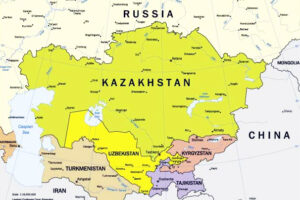RIA Novosti: Russian expert forecasts “quiet” power transfer in Uzbekistan

(RIA Novosti – August 29, 2016)
The elite have been preparing for the current Uzbek President Islam Karimov’s departure from power for a long time – all those involved are interested in maintaining the current state of things.
It is the opinion of Alexey Malashenko, an expert of the Moscow Carnegie Centre.
The government of Uzbekistan on Sunday announced that Karimov is undergoing medical treatment in hospital which will require “a certain period of time”. No details of the Uzbek leader’s illness and expected period of treatment were given.
On Monday a daughter of the head of state, Lola Karimova-Tillyayeva posted on a social network that Karimov is in intensive care with brain haemorrhage, but at present his condition is considered stable.
“Many are already talking about a ‘post-Karimov’ phase. First, this phase began not after the brain haemorrhage, but much earlier since everyone has been expecting for a long time that Karimov would be leaving soon.
“Speculations about his [imminent] departure have been arising over the past 15 years every two years, so preparations for that moment have been ongoing. It does not mean, however, that someone is intriguing, creating coalitions or there is an escalation of inter-clan fighting – so far everything is well in this regard,” Malashenko told RIA Novosti.
According to him, it is not possible to say with certainty how events are going to unfold after Karimov’s departure.
Nevertheless, the analyst thinks that the political elite and power-wielding bodies will be interested in maintaining the current stability behind the backdrop of uneasy financial and other important problems facing the country.
“They are really not interested in rattling the nation and themselves given the economic conflict [as given] and very serious internal problems. I think that nothing is going to happen immediately after Karimov’s departure.
“What is going to happen next? It is going to be dead quiet, the political groups and clans will achieve a consensus, the more so as the clans at the moment are very mixed. This is the most probable scenario,” Malashenko said.
According to another scenario suggested by Malashenko, after Karimov’s departure the [existing political] forces are going to begin “to divide the inheritance” – “the more so as the president himself does not have a successor as such.”
“There will be mosaic confrontations, to say nothing about [possible reactions in] the regions. If such a tumultuous transition begins, I do not rule out that the losing side might begin to use Islam. It is typical for the Muslim world,” the analyst said.
Nevertheless, even if that happens, no kind of “Muslim revolution” or “Muslim explosion” can be expected, the expert noted.
“Hizb it-Tahrir al Islami [radical Islamist movement banned in Uzbekistan] is active there, they number around 7,000, however a huge number of them have left for Russia disguised as labour migrants.
“It is also interesting how the Uzbek society itself is going to react to these changes: so far everything is quiet, but you can’t know what to expect. It would be ridiculous to make any predictions,” the expert said.
